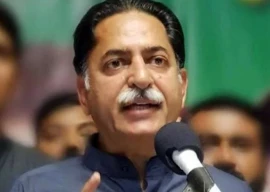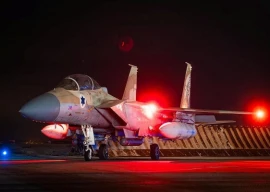
The UN Security Council has decided to prepare separate lists for the Afghan Taliban and for al Qaeda activists. Henceforth, the Taliban and al Qaeda will be treated as two separate entities. In another move, the council will also approve the removal of about twenty Taliban leaders from the UN blacklist.
According to US perceptions, this is a confidence building measure and will, in their view, pave the way for the start of a dialogue with leaders of the Afghan resistance. At the same time, Afghan President Hamid Karzai has confirmed that the US is engaged in talks with the Taliban. While it appears that some covert contacts have been made with the resistance in Afghanistan, this does not mean that talks for ending the conflict have begun. One possibility is that talks are underway with the ‘go-betweens’. The US and other western countries, principally the UK, may have been talking to those who claim to take messages back and forth to the main resistance leaders. Future talks will centre around items such as agenda, scope, level of delegations, venue and preconditions, if any. Whether these also relate to the release of prisoners before an ambience can be created for conflict resolution talks remains to be seen.
There are no indications yet of the Taliban showing any inclination to deviate from their consistent stand: No negotiations as long as the coalition forces are on the soil of their country. It appears highly unlikely that this stand has been abandoned or modified. Further, there are two factors that have constantly haunted the Taliban leadership in the context of opening talks with the US. One, resistance leaders believe that the offer of talks is bait designed to create a rift in the ranks of the Taliban. Second, they are of the view that any news of formal talks with the US will blunt their campaign and demotivate their supporters from waging a relentless war against the coalition forces. Resistance leaders have this nagging fear that, once fighting ceases as a consequence of ‘peace talks’, the campaign will lose momentum.
But there could be a genuine US effort aimed at seeking reconciliation with the resistance under some mutually agreeable conditions. A way out could be the installation of a caretaker administration that comprises representatives, chosen in consultation with members of the resistance and the Afghan government, under an overarching peace accord. Under this accord, the coalition forces will withdraw completely and a limited peace-keeping force under UN mandate will be inducted to prevent any possible factional fighting. Elections after a stipulated period of time will be held under UN auspices that will create a parliament which reflects the aspirations of the Afghan people.
Another model could be the convening of a conference of all stakeholders — Russia, China, Turkey, India, Iran, Saudi Arabia and Pakistan — which will lay down certain basic benchmarks for the future of Afghanistan. The agreement, ratified by the UN, will bind these countries to a commitment to ensure that al Qaeda and its affiliates have no space in the country and that Afghanistan does not allow its soil to be used against any other country. This would be done parallel to the withdrawal of all foreign troops. The blacklist will go, prisoners will be released and Afghans will be facilitated in devising appropriate political and administrative institutions for their country.
If the intention is to save and stabilise Afghanistan and launch it on a trajectory of peace and prosperity, underpinned by institutions and the rule of law, the opportunities are vast and the options are many. But if the emphasis is on turfs, personal agenda or regional hegemony, then the future looks bleak and dark. If history is any guide, one cannot create an edifice of stability on shaky foundations. Afghanistan should not be made a scapegoat for hegemonic ambitions.
Published in The Express Tribune, June 24th, 2011.























































COMMENTS (8)
Comments are moderated and generally will be posted if they are on-topic and not abusive.
For more information, please see our Comments FAQ